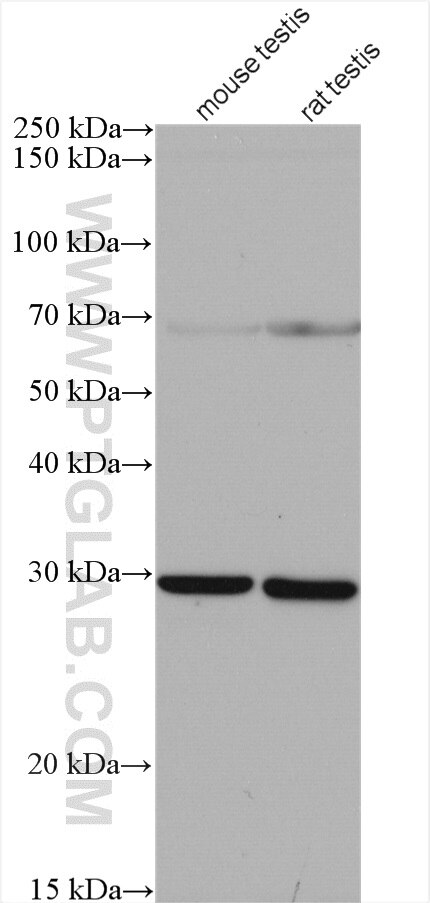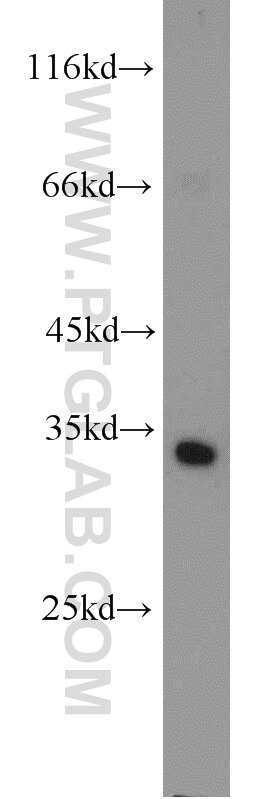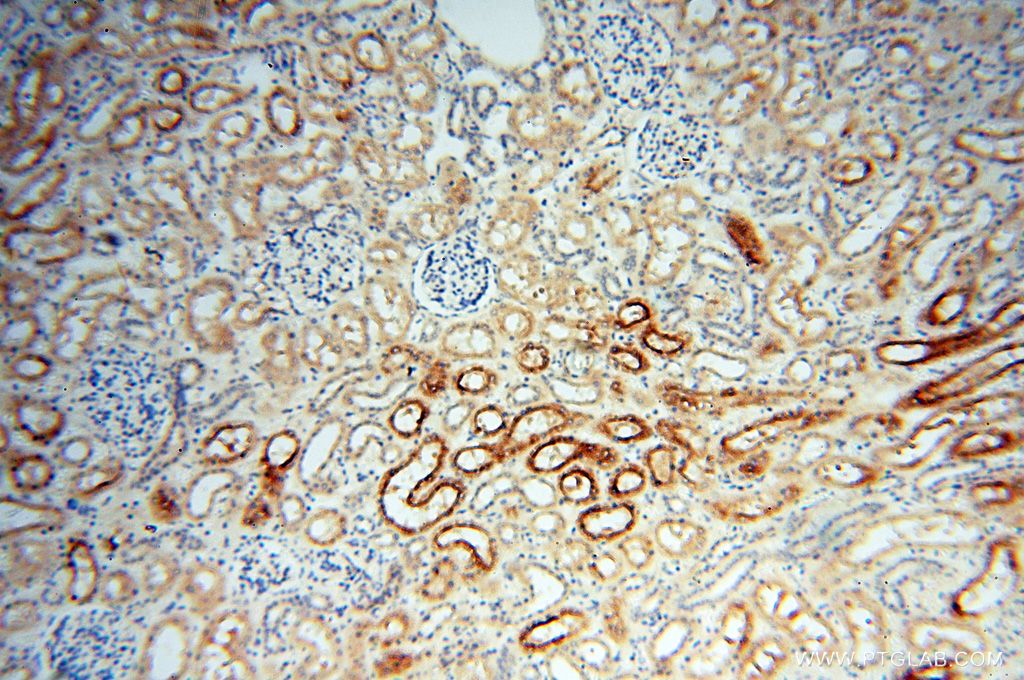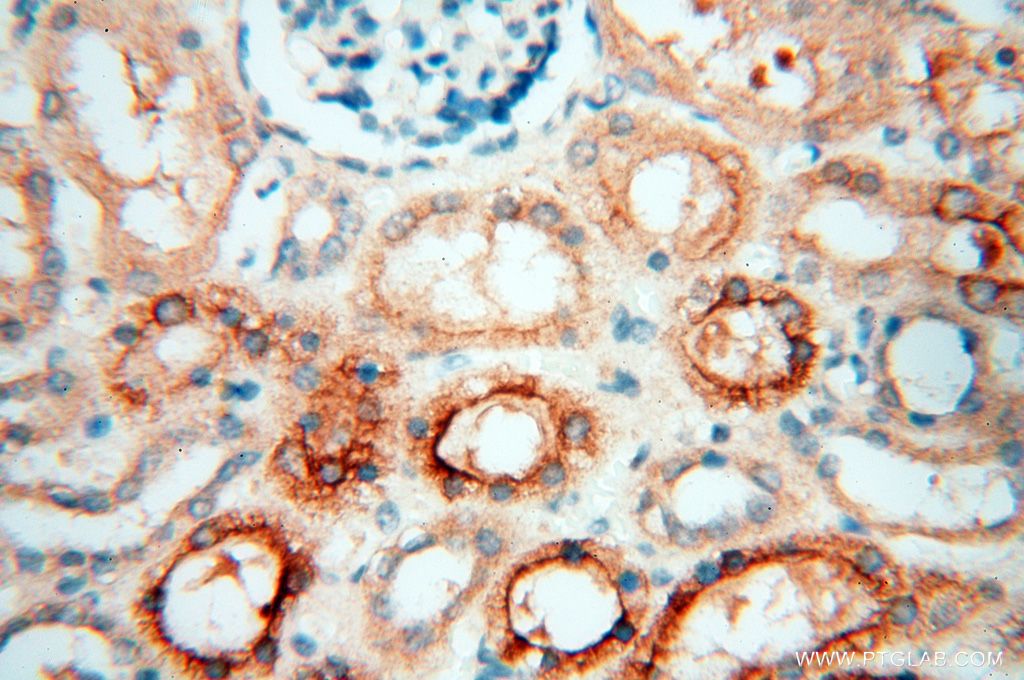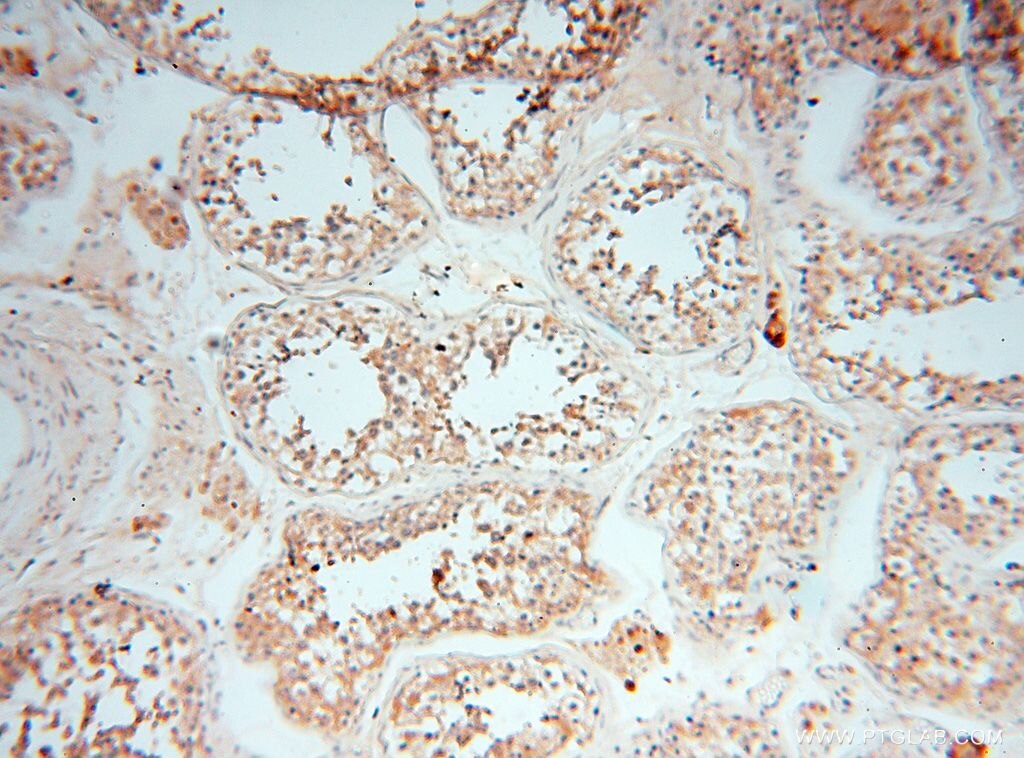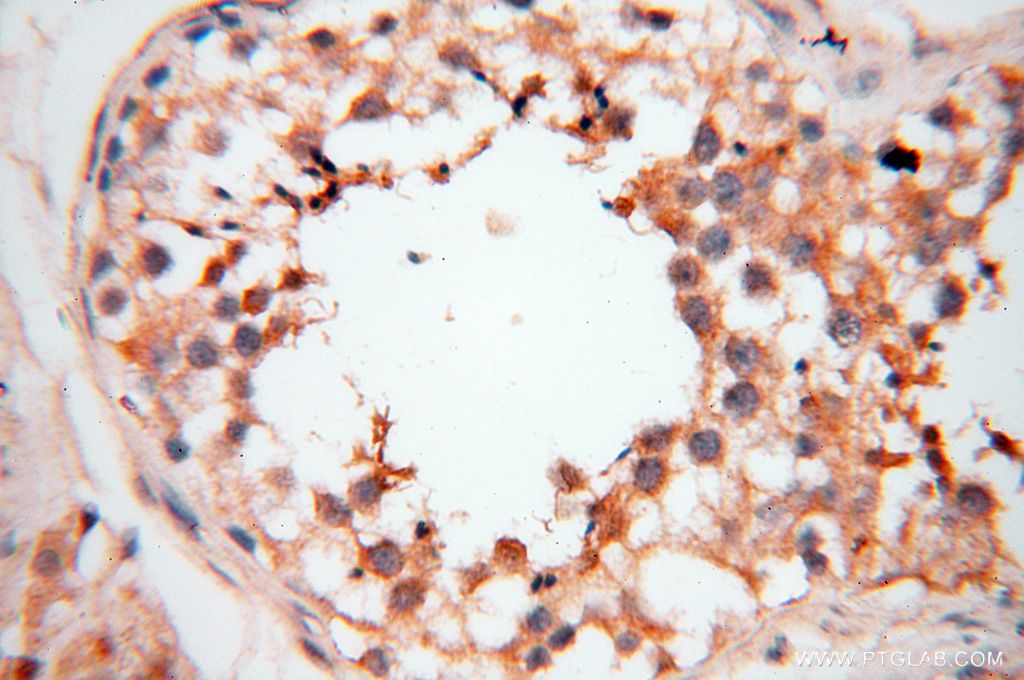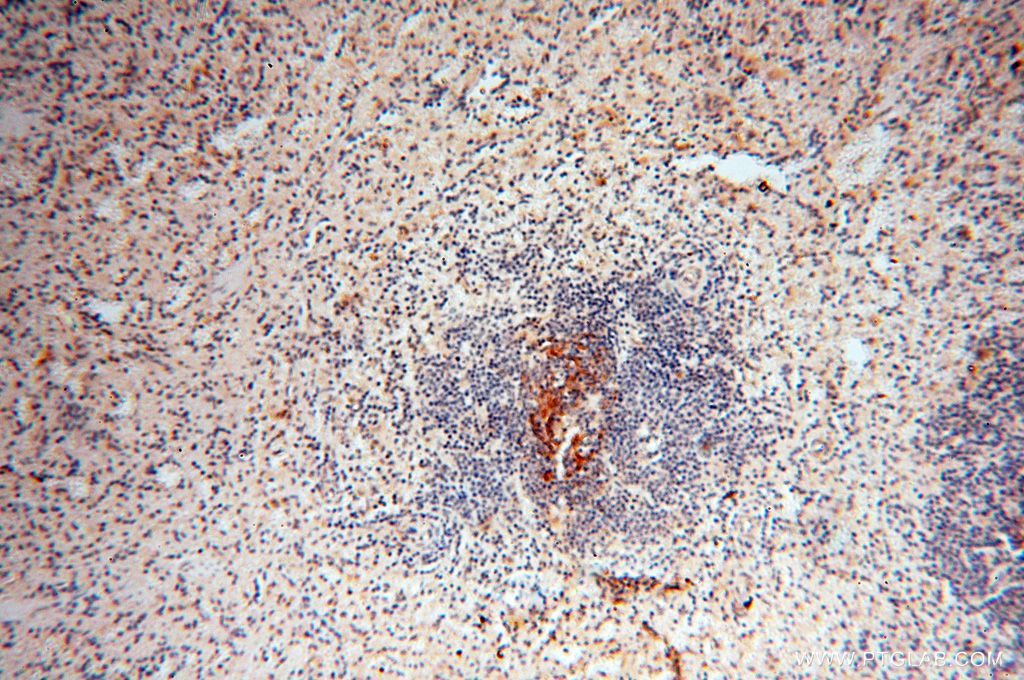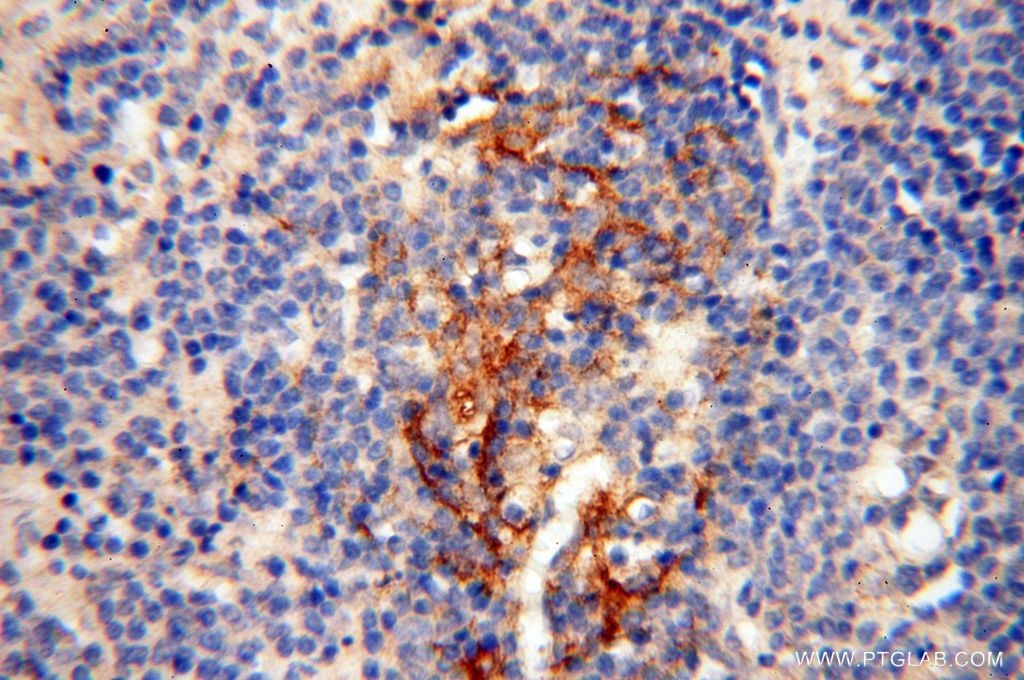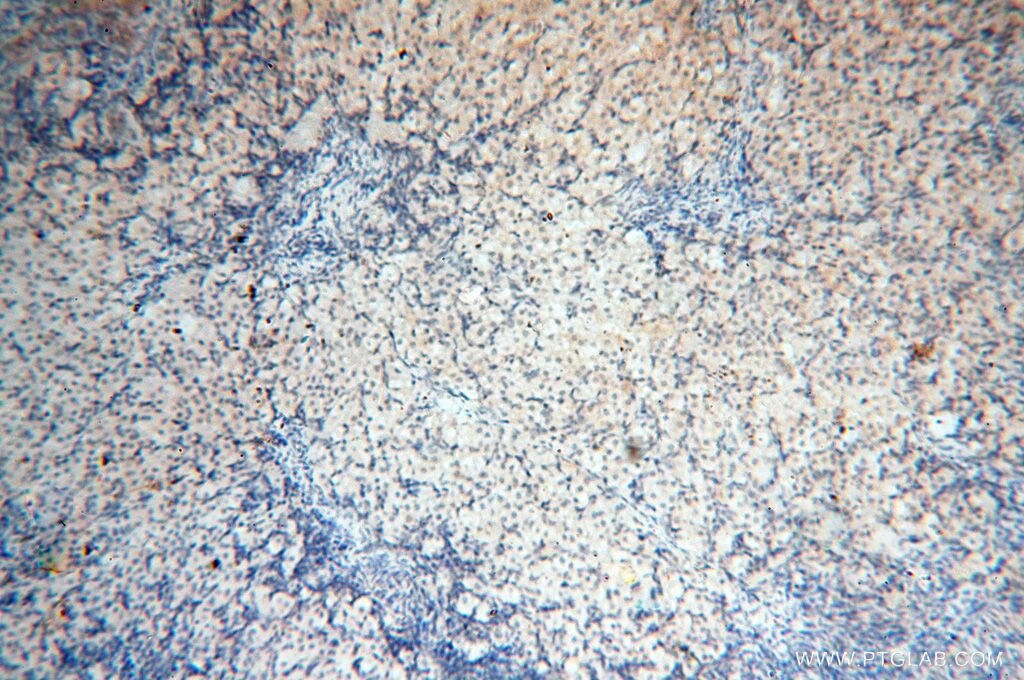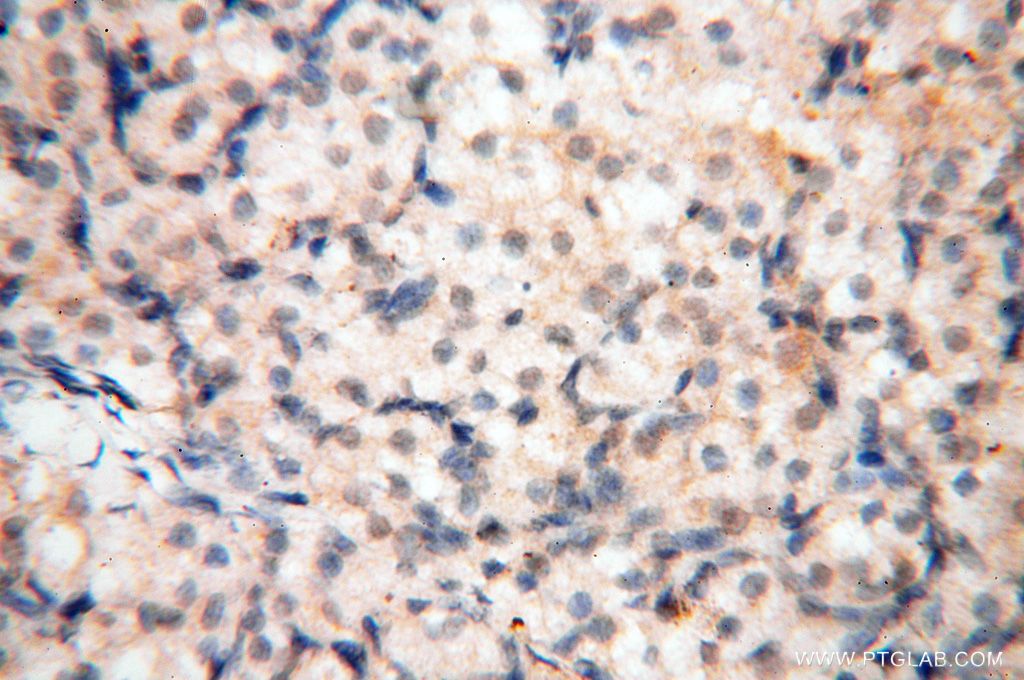Validation Data Gallery
Tested Applications
| Positive WB detected in | mouse testis tissue, rat testis tissue |
| Positive IHC detected in | human kidney tissue, human ovary tissue, human spleen tissue, human testis tissue Note: suggested antigen retrieval with TE buffer pH 9.0; (*) Alternatively, antigen retrieval may be performed with citrate buffer pH 6.0 |
Recommended dilution
| Application | Dilution |
|---|---|
| Western Blot (WB) | WB : 1:500-1:4000 |
| Immunohistochemistry (IHC) | IHC : 1:20-1:200 |
| It is recommended that this reagent should be titrated in each testing system to obtain optimal results. | |
| Sample-dependent, Check data in validation data gallery. | |
Published Applications
| WB | See 2 publications below |
| IHC | See 1 publications below |
| IF | See 1 publications below |
Product Information
17407-1-AP targets PDCL2 in WB, IF, IHC, ELISA applications and shows reactivity with human, mouse, rat samples.
| Tested Reactivity | human, mouse, rat |
| Cited Reactivity | human, mouse |
| Host / Isotype | Rabbit / IgG |
| Class | Polyclonal |
| Type | Antibody |
| Immunogen |
CatNo: Ag11427 Product name: Recombinant human PDCL2 protein Source: e coli.-derived, PGEX-4T Tag: GST Domain: 1-250 aa of BC034431 Sequence: MQDPNEDTEWNDILRDFGILPPKEESKDEIEEMVLRLQKEAMVKPFEKMTLAQLKEAEDEFNEEDMQAVETYRKKRLQEWKALKKKQKFGELREISGNQYVNEVTNAEEDVWVIIHLYRSSIPMCLLVNQHLSLLARKFPETKFVKAIVNSCIQHYHDNCLPTIFVYKNGQIEAKFIGIIECGGINLKLEELEWKLAEVGAIQTDLEENPRKDMVDMMVSSIRNTSIHDDSDSSNSDNEPNREKYSINSF 相同性解析による交差性が予測される生物種 |
| Full Name | phosducin-like 2 |
| Calculated molecular weight | 250 aa, 29 kDa |
| Observed molecular weight | 30-35 kDa |
| GenBank accession number | BC034431 |
| Gene Symbol | PDCL2 |
| Gene ID (NCBI) | 132954 |
| RRID | AB_2299492 |
| Conjugate | Unconjugated |
| Form | |
| Form | Liquid |
| Purification Method | Antigen affinity purification |
| UNIPROT ID | Q8N4E4 |
| Storage Buffer | PBS with 0.02% sodium azide and 50% glycerol{{ptg:BufferTemp}}7.3 |
| Storage Conditions | Store at -20°C. Stable for one year after shipment. Aliquoting is unnecessary for -20oC storage. |
Protocols
| Product Specific Protocols | |
|---|---|
| IHC protocol for PDCL2 antibody 17407-1-AP | Download protocol |
| WB protocol for PDCL2 antibody 17407-1-AP | Download protocol |
| Standard Protocols | |
|---|---|
| Click here to view our Standard Protocols |
Publications
| Species | Application | Title |
|---|---|---|
PNAS Nexus Tex46 knockout male mice are sterile secondary to sperm head malformations and failure to penetrate through the zona pellucida | ||
Transl Androl Urol Identification of PDCL2 as a candidate marker in Sertoli cell-only syndrome by chromatin immunoprecipitation-sequencing and bioinformatics analysis |

